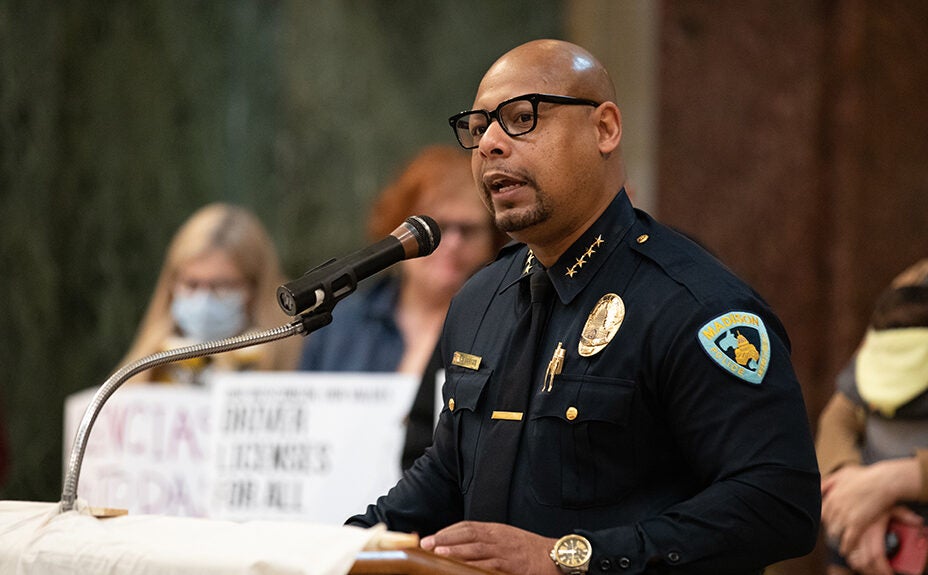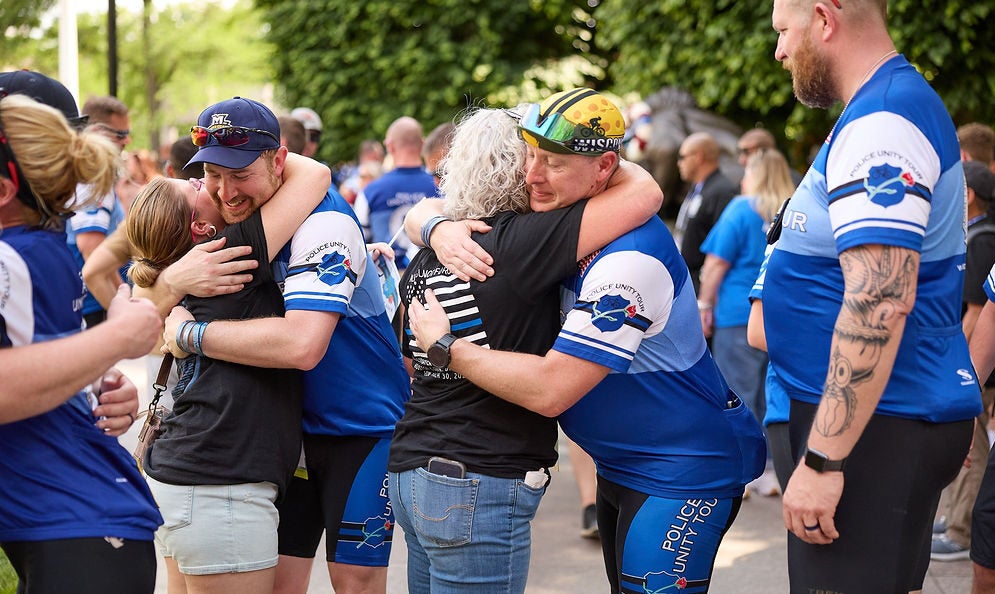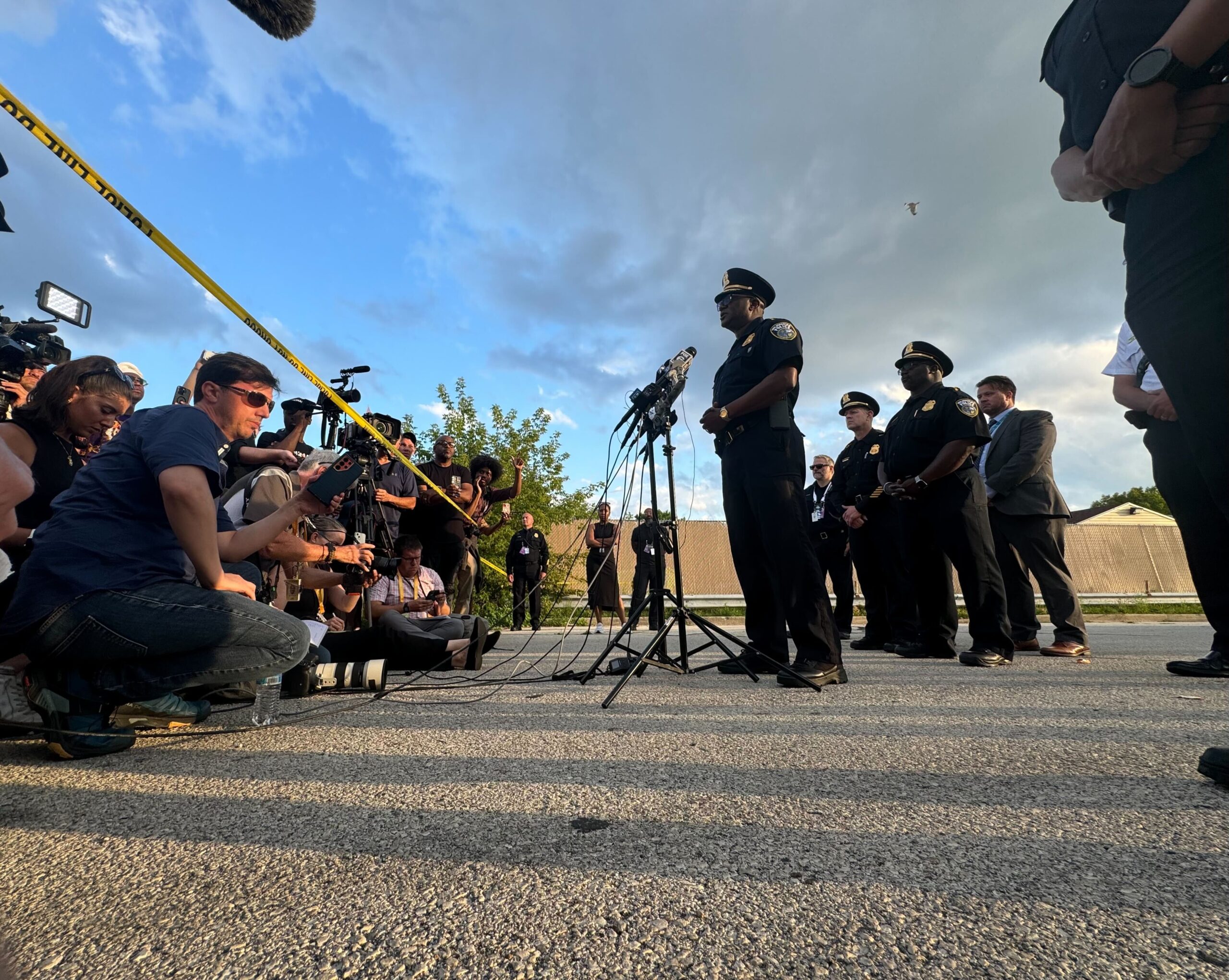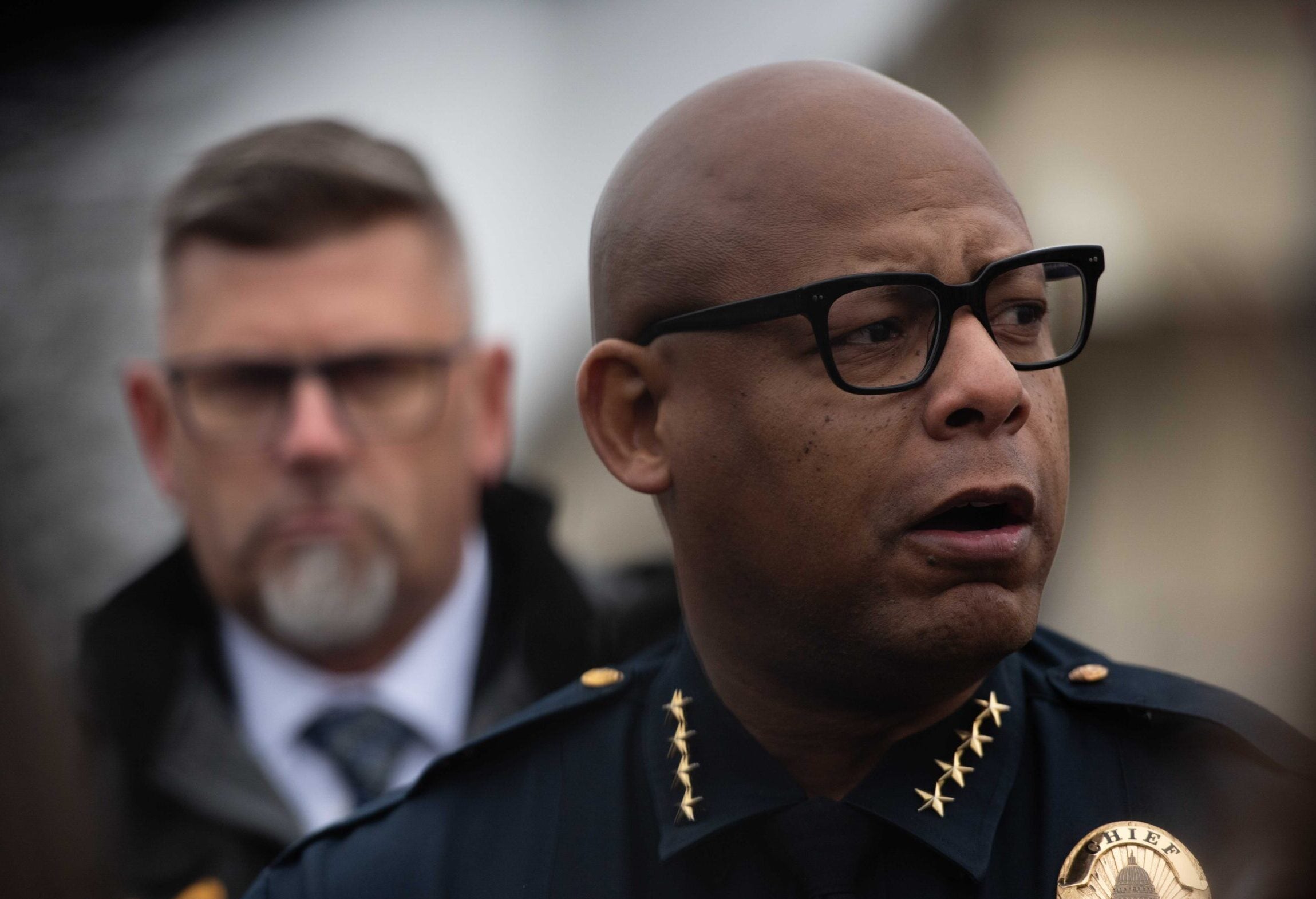Madison’s police chief is calling for the city to fund body cameras for its officers, something most similar-sized cities already have.
Body-worn cameras have become more common in the last decade, but Madison is an outlier. It’s the largest city in the Midwest that doesn’t use body-worn cameras.
Now, after a pilot project testing out use of the devices, police Chief Shon Barnes is requesting that the city fund widespread use of body cameras for officers in the city.
Stay informed on the latest news
Sign up for WPR’s email newsletter.
The new report surveyed officers and community members on their experiences with the cameras. It found that officers didn’t change their behavior when wearing the cameras and that the devices may increase trust, legitimacy and transparency.
Some of the biggest concerns raised in the pilot project included the time-consuming nature of loading the video in writing police reports. Barnes estimates a cost to the city ranging between $3.2 million and $6.7 million.
Barnes recently spoke with WPR’s “Wisconsin Today” about why he supports body cameras.
The following has been edited for brevity and clarity.
Rob Ferret: You’ve been advocating for wider use of body-worn cameras in Madison. Why do you want to see this technology more widely used?
Shon Barnes: Because the technology has really been around for a very, very long time. Prior to coming to Madison, I had an opportunity to be a part of a police department that was the first in the country to give all officers on patrol body-worn cameras. We did this two years before the incident of Mike Brown in Ferguson, when people said, “We need body-worn cameras so we can have a full account of what happened.”
And I’ll be honest with you, I was one of the people who was in total disagreement with body-worn cameras. I stood up, I told my chief, I said, “We don’t need to wear body-worn cameras with the police officers, and our job is to create trust. If people don’t trust us, then we can’t do our jobs. Why do we need body worn cameras? I’m against it.” And the chief said, “Good, you’re on our implementation team.”
Because he did that, I began to educate myself and learn about the technology and how it really could be used as a force multiplier in our efforts to create trust. And I got to tell you, every officer who wears body-worn cameras, they won’t work without them once they have them on. It’s a level of protection for us and a level of protection for our community.
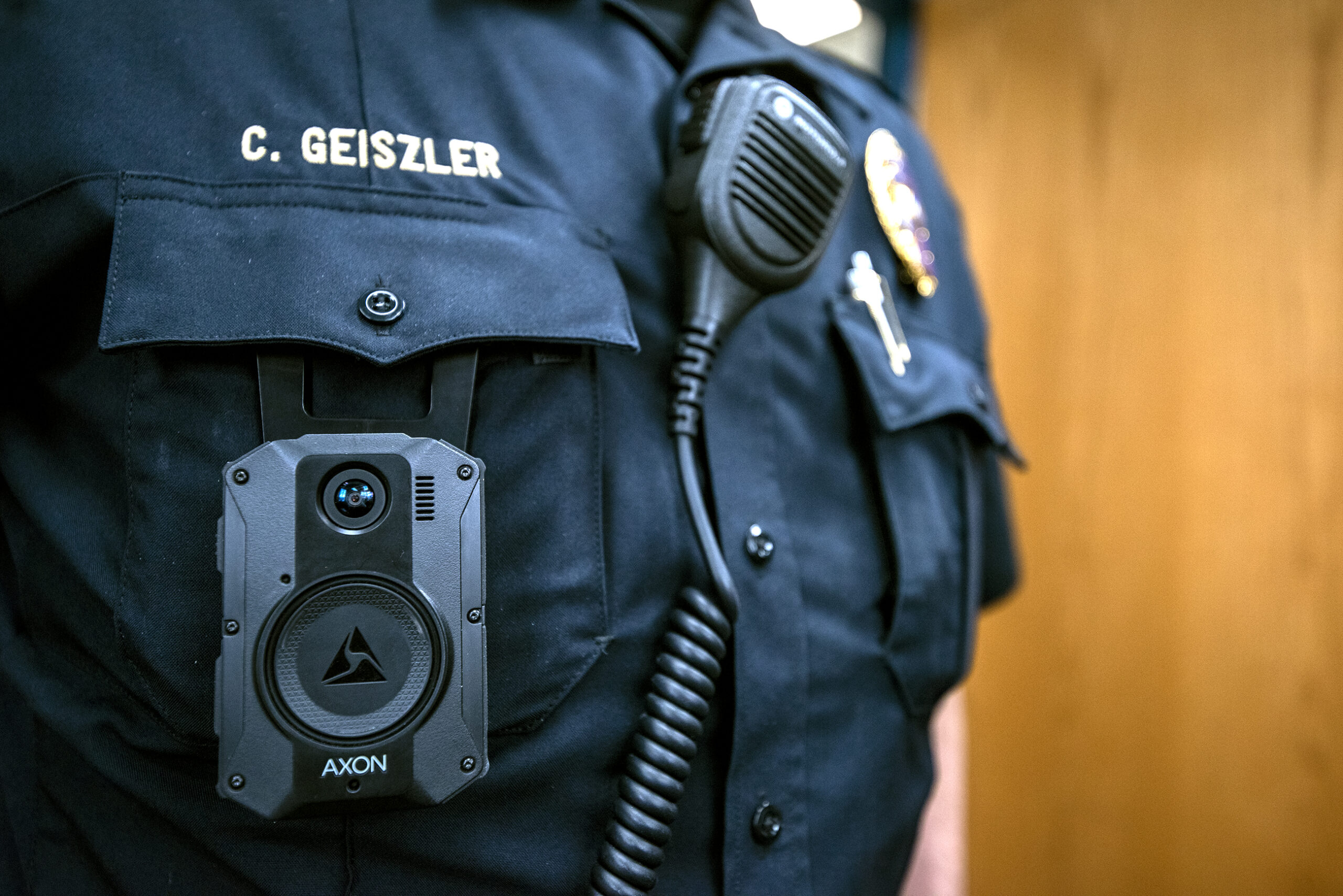
RF: What do you see as protection for officers and community members when that camera is there and it’s on?
SB: We had an incident here in our city last week. The incident was captured on someone’s cell phone camera. It involved the routine arrest of someone who did not want to go into handcuffs. You only saw a relatively small part of that interaction, which was the physical handcuffing.
But what you didn’t see was the officer attempting to de-escalate. You didn’t see the officer using their conflict resolution skills. You didn’t see the officer call for an additional person, because we know that the more officers that are on the scene, the less likely you are to have a use of force, because you don’t feel as threatened. You didn’t see the officer speaking with the complainant about, “Hey, is there anything else that we can do?”
And so we have to show … the entire interaction, so that people can really see what we actually do each and every day to keep them safe.
RF: Under a state law, police departments can charge public records requesters because it can be time consuming to go through these videos and redact them to protect members of the public. When and how should the public be able to access these videos?
SB: Sure, the public can access the videos the same way they can access a police report, the same way they can access arbitrator audio. The body-worn camera companies realize this is probably a hurdle, and so they’ve been really, really smart with making sure that the software is a little bit easier to redact children, to redact a license plate and things like that. But we feel like we can get that out fairly quickly.
As to cost, we don’t have them the cameras yet, so I can’t tell you if there would be a cost or there would not be a cost. But if there’s something that (for example, requires) an external hard drive, there may be a cost associated with that.
RF: Can you make the case that the benefit is enough to justify making this a priority against many other priorities in a city budget?
SB: Many cities across the country are paying a lot of money in lawsuits because you can’t completely determine the extent of something without body-worn cameras. You know, we have not had any lawsuits recently, and that’s great. But if something happens and it was your relative or your loved one who had an interaction that you thought was negative, what would you want? Would you want to be able to see exactly what happened so you can make an informed decision? And if so, how much would that be worth to you?
Wisconsin Public Radio, © Copyright 2025, Board of Regents of the University of Wisconsin System and Wisconsin Educational Communications Board.
